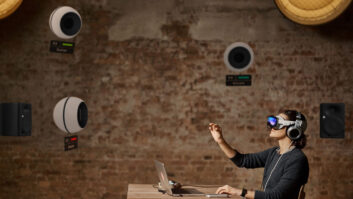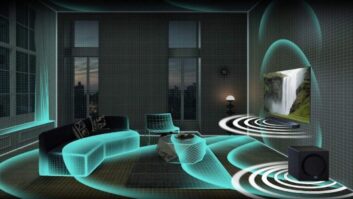
Santa Clara, CA (September 27, 2022)—Real-time engagement platform developer Agora has announced the results of a commissioned study that examines Gen Z preferences regarding spatial audio
Prior to the survey, 49% of respondents had heard of spatial audio, though 51% were either unaware of the technology or not sure if they had heard of it before. Relatedly, 50% of respondents agree there have been fewer advances to live audio experiences compared to live video over the years.
“This technology is in its infancy from an adoption standpoint as large technology companies — whether content, software or hardware-focused — are only just beginning to invest in it,” according to Tony Zhao, co-founder and CEO of Agora, which is headquartered in California’s Silicon Valley and Shanghai, China. “However, its awareness among Gen Z is fairly high — and growing. They are welcoming it as much-needed innovation, especially as interest in the Metaverse and virtual content consumption continues to surge.”
When asked in what setting spatial audio experiences are most important, gaming (24%) and watching TV shows or movies (21%) took the lead, followed by virtual shows or concerts (14%), audiobooks/podcasts (9%), online presentations (9%), and virtual hangouts (9%). Virtual tours of a physical space (8%) and in-store shopping experiences (5%) were deemed the least important settings for spatial audio experiences.
In line with Gen Z’s awareness of spatial audio, 79% of respondents said they would pay for new headphones with spatial audio features, while over one-quarter (28%) say they would pay regardless of price.
MixNYC: Great Day, Great Studio, Great City
“The Gen Z audience sees the value of spatial audio and is willing to invest in the hardware required to experience it,” Zhao said. “These numbers should give technology companies greater confidence when considering whether or not to invest in spatial audio features and capabilities.”
Meanwhile, 26% said they wouldn’t want to pay more than $50 for new headphones with spatial audio capabilities and 25% wouldn’t want to pay more than $100.
Sixty percent of Gen Z consumers said they’d prefer to use a Metaverse service with 3D spatial audio. A little over one-third (34%) were neutral, with 6% saying they wouldn’t prefer to use a service with 3D spatial audio in the Metaverse.
“As more brands get involved in the metaverse, technology like spatial audio will be a necessity to creating immersive, engaging experiences during virtual interactions,” said Zhao. “There is clear interest from consumers to invest in hardware to experience spatial audio, and businesses across industries should find ways to get involved in this niche, yet important part of delivering immersive experiences.”
Agora surveyed over 1,500 Gen Z consumers for the study.







